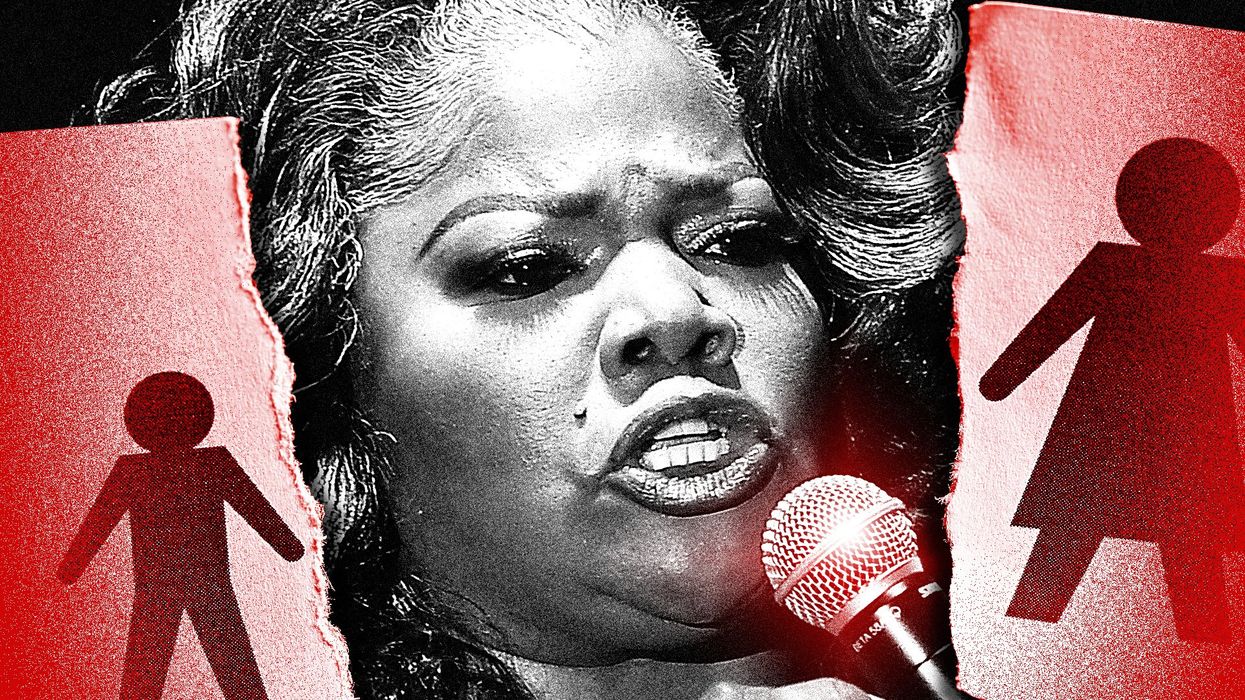
Paras Griffin / Contributor | Getty Images

Modern race discourse is governed by the symbiotic relationship between whites seeking absolution for sins they didn’t commit and blacks seeking compensation for injustices they didn’t endure.
Monique Hicks (aka Mo’Nique) is a stand-up comedian and Oscar-winning actress. She’s also apparently a political theorist, because she recently made the clearest argument against the politics of racial grievance and guilt I have ever heard — all without ever mentioning skin color.
For years, Mo’Nique has claimed that Oprah Winfrey and Tyler Perry owe her an apology — and financial compensation — for costing her opportunities in Hollywood. She recently repeated her claim about both media moguls on Shannon Sharpe’s popular “Club Shay Shay” podcast. She was also open with Sharpe about the complicated relationship she has with her oldest child, a son named Shalon.
Even if they don’t use language as harsh as Mo’Nique’s, many parents have the same sentiment toward their kids: “Get over it and live your life!”
Shalon responded to his mother’s viral “Club Shay Shay” interview with a video laying out the reasons the two are estranged and noted Mo’Nique’s shortcomings as a mother. Mo’Nique and her husband, Sidney Hicks, responded to him in subsequent videos and even posted text messages to dispute the notion that the comedian is a distant, unloving mother.
But the nature of this family drama changed during a recent comedy show, in which Mo’Nique punctuated her refusal to be beholden to her son’s feelings with a declaration that sounded like a secret recording of a 1950s Klan rally:
And just like that, Mo’Nique moved from sympathetic victim to callous victimizer in the minds of some of her supporters. On a broader level, she also demonstrated why the progressive tendency to outsource racial uplift is doomed to fail.
The equity industrial complex is built on two main assumptions. The first is the belief that all disparities in social outcomes between blacks and whites are due to racial discrimination. The second is that white people have a special obligation to use their collective “privilege” and power to improve the economic and social conditions of black Americans by closing those gaps.
But if a mother worth millions doesn’t feel compelled to spend the rest of her life apologizing and making amends for the mistakes she made while raising her son, why would anyone expect total strangers to do the same for people based on historical discrimination and skin color?
The truth is that people who don’t know you and have never harmed you have no moral obligation to prostrate themselves as you blame them for everything you don’t like about your life. The fact that the titans of America’s racial grievance industry can get random white people to get on their knees and apologize for the unspecified sins of others tells you how deeply entrenched this mind virus has become.
As Mo’Nique proved, most parents — regardless of race — don’t spend every waking moment trying to make up for every mistake their children believe they made. At best, some will acknowledge major issues like drug abuse and abandonment.
But many adult children never get the validation they seek from their parents. And even if they don’t use language as harsh as Mo’Nique’s, many parents have the same sentiment toward their kids: “Get over it and live your life!”
But somehow, the civil rights establishment sells the black masses on the notion that benevolent white people can be harassed, cajoled, and guilted into taking responsibility for our social outcomes. This is why the NAACP would rather get white Hollywood stars to “take responsibility” for racism than highlight black fathers, coaches, pastors, and business owners who are taking responsibility for their families and communities.
What makes things even worse is what civil rights organizations and “racial justice” activists don’t say. They never talk about the connection between marriage, family structure, and social outcomes. They also don’t promote marriage and family as a social good and requirement for sustainable racial uplift. And they certainly don’t tell the watching world a black boy in Brooklyn growing up with his married father and mother in a loving, working-class home is far more “privileged” than a white classmate with an absent father and a disinterested mother.
Instead, they dismiss the importance of parents while demanding that white people treat us like perpetual children.
Modern race discourse is governed by the symbiotic relationship between whites seeking absolution for sins they didn’t commit and blacks seeking compensation for injustices they didn’t endure. This is why some liberal white women will pay thousands of dollars to be told how racist they are — sometimes in their own homes.
Some people — both black and white — see this as a sign of progress.
I don’t.
I find it undignified and embarrassing, both for the white people who participate in these humiliation rituals and the black people who prioritize external validation over personal agency.
Mo’Nique shows why this approach is bound to fail. Most people have no interest in spending their lives apologizing for things they’ve done in the past. They certainly won’t go to the grave repenting for the sins of others. Her son also is learning a valuable lesson: You can’t stop living your life just because you didn’t get the recognition, apology, and affirmation you desire.
Parents can put their children on a path to intergenerational success — or failure. Some do a better job at it than others, but even the pain of our past can be used to build something better for our own children in the future.